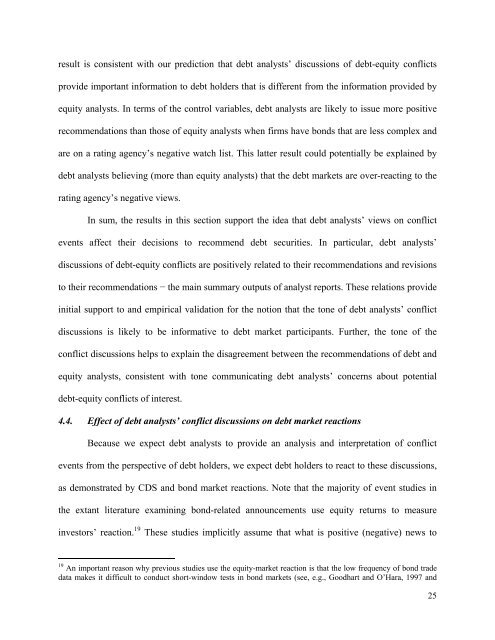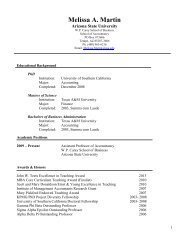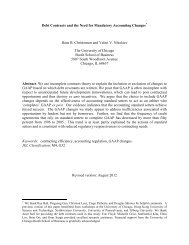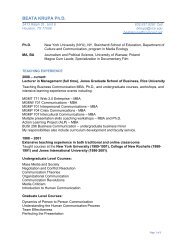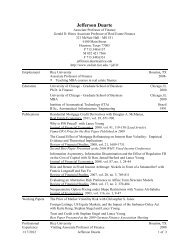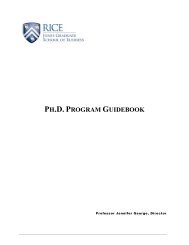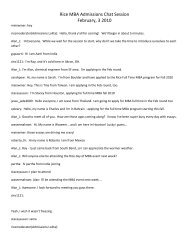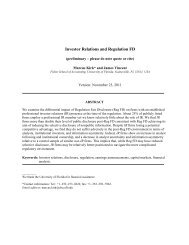Debt Analysts' Views of Debt-Equity Conflicts of Interest
Debt Analysts' Views of Debt-Equity Conflicts of Interest
Debt Analysts' Views of Debt-Equity Conflicts of Interest
Create successful ePaper yourself
Turn your PDF publications into a flip-book with our unique Google optimized e-Paper software.
esult is consistent with our prediction that debt analysts’ discussions <strong>of</strong> debt-equity conflicts<br />
provide important information to debt holders that is different from the information provided by<br />
equity analysts. In terms <strong>of</strong> the control variables, debt analysts are likely to issue more positive<br />
recommendations than those <strong>of</strong> equity analysts when firms have bonds that are less complex and<br />
are on a rating agency’s negative watch list. This latter result could potentially be explained by<br />
debt analysts believing (more than equity analysts) that the debt markets are over-reacting to the<br />
rating agency’s negative views.<br />
In sum, the results in this section support the idea that debt analysts’ views on conflict<br />
events affect their decisions to recommend debt securities. In particular, debt analysts’<br />
discussions <strong>of</strong> debt-equity conflicts are positively related to their recommendations and revisions<br />
to their recommendations − the main summary outputs <strong>of</strong> analyst reports. These relations provide<br />
initial support to and empirical validation for the notion that the tone <strong>of</strong> debt analysts’ conflict<br />
discussions is likely to be informative to debt market participants. Further, the tone <strong>of</strong> the<br />
conflict discussions helps to explain the disagreement between the recommendations <strong>of</strong> debt and<br />
equity analysts, consistent with tone communicating debt analysts’ concerns about potential<br />
debt-equity conflicts <strong>of</strong> interest.<br />
4.4. Effect <strong>of</strong> debt analysts’ conflict discussions on debt market reactions<br />
Because we expect debt analysts to provide an analysis and interpretation <strong>of</strong> conflict<br />
events from the perspective <strong>of</strong> debt holders, we expect debt holders to react to these discussions,<br />
as demonstrated by CDS and bond market reactions. Note that the majority <strong>of</strong> event studies in<br />
the extant literature examining bond-related announcements use equity returns to measure<br />
investors’ reaction. 19 These studies implicitly assume that what is positive (negative) news to<br />
19 An important reason why previous studies use the equity-market reaction is that the low frequency <strong>of</strong> bond trade<br />
data makes it difficult to conduct short-window tests in bond markets (see, e.g., Goodhart and O’Hara, 1997 and<br />
25


